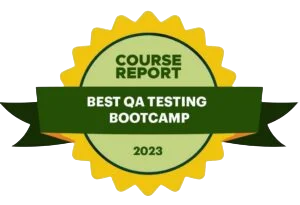
As technology advances, so does the complexity of software. Because of this complexity, the increase in mobile applications and digital platforms, companies in various industries understand the importance of providing high-quality products to users. Therefore, since QA testers play a crucial role in detecting and eliminating software defects, ensuring the usability and reliability of the product, the demand for QA testers is still quite high.
If you have ever thought about how to get a job in QA, then here are 5 basic tips for you:
In order to start your QA career correctly, you should familiarize yourself with the basic skills of working with a computer, operating systems and software applications. Develop your understanding of how software works and programming fundamentals.
To become a professional QA tester you need to be familiar with such popular testing tools as Selenium, Jira and others. If you will be able to master these tools, then it will be a big plus at the interview in the company.
In order to take the firm step of starting your career as a QA tester, you need to have a resume that details your education, professional skills, and any relevant experience. If you have no experience but have taken courses from, for example, Test Pro, then you can indicate this in your resume and thus improve your qualifications.
If you just sit, nothing will happen. You need to act! And the best course of action is to apply for entry-level quality tester positions. To gain professional experience, you need to look for an internship. Do not worry, because everyone starts from something.
One of the important qualities of a QA tester is to communicate effectively with developers, product managers and other team members. To get a quality assurance career path at a higher level, you need to learn to think clearly and collaborate with various stakeholders.

If you want to become a master of your craft, namely a professional QA tester, then you need to sign up for the Quality Assurance Engineer course from Test Pro and see how great this platform and teachers are. In terms of method, our learning method combines self-directed online learning with real-world project simulation and a focus on developing relevant skills for your future job. Regardless of whether you have experience or are starting your journey as a QA tester from scratch, we are sure to help you at any time and will be with you until the end of the course. Also, after passing the Test Pro course, we guarantee you real employment. You can earn from 35 dollars per hour. Isn’t that a reason to rejoice?
Are you ready to start your own successful page in your QA career story? If so, then quickly sign up for a free webinar from Test Pro and change your life today!

It’s no secret that the field of QA is constantly evolving. And in search of new, much more effective and accelerated approaches to testing, a revolutionary trend appeared – intelligent test automation. Thanks to such a revolution, humanity opens a new era where artificial intelligence takes the lead in testing processes. In this article, we’ll look at the main aspects of Intelligent test automation, explore how it’s changing the field of QA, and explore why automation courses from Test Pro can benefit you. Are you ready? Then we begin!

Where the word Jira is heard, Xray is not too far behind, but what does this mean for the average QA tester? Well, that’s what today’s article is all about, understanding what Xray for Jira offers and why it’s such a popular pick all over the world. So if you want to become an Xray and Jira expert overnight, this will be the best first step to begin your journey.

Now, in a world where everything goes digital, quality is vital. Android and iOS applications and websites have become the norm, and a bug can be devastating for businesses. Both SDET (Software Development Engineer in Test) and QA (Quality Assurance) focus on providing the best quality to ensure customer satisfaction. But their roles are slightly different.
So, what is the difference between SDET and QA? What should you pursue in an online course to begin a new career in tech: QA vs. SDET?